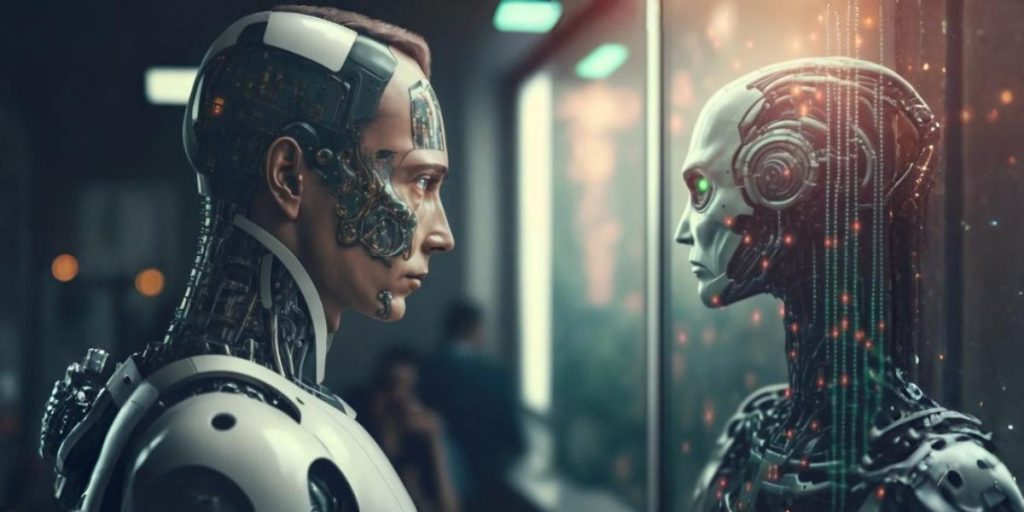Artificial Intelligence (AI) is no longer a futuristic concept — it’s woven into the fabric of our everyday lives. From voice assistants and personalized shopping recommendations to self-driving cars and medical breakthroughs, AI has already changed the way we live, work, and connect.
But the next 10 years? That’s where things get really interesting.
In this article, we explore the future of AI — what’s coming, what’s evolving, and how it might transform everything from our jobs to our daily routines.
1. Everyday AI Will Become Invisible — and Inevitable
Today, AI shows up in obvious places: chatbots, facial recognition, translation apps. In the next decade, AI will work silently in the background — enhancing our lives without us even realizing it.
Imagine this:
- Your home adjusts lighting and temperature automatically based on your mood and schedule.
- Your fridge knows what’s running low and adds it to your shopping app.
- Your smartphone writes emails based on voice notes, accurately capturing your tone.
AI will become less about novelty and more about seamless experience.
2. AI Will Revolutionize Healthcare
In the next 10 years, AI is expected to become a central force in global healthcare systems.
What to expect:
- Faster, more accurate diagnoses via AI-powered imaging and diagnostics.
- Predictive analytics that warn patients and doctors about health risks early on.
- Personalized treatment plans using genetic data and real-time health tracking.
AI will not replace doctors — but it will make them significantly more powerful.
Bonus Insight: IBM’s Watson and Google’s DeepMind are already making strides in AI-assisted medicine.
3. The Workplace Will Be Reimagined
Automation anxiety is real, but the future of work with AI is more about transformation than replacement.
Here’s what’s likely:
- Repetitive jobs will be automated (think data entry, scheduling, quality checks).
- Creative, strategic, and human-centric roles will grow in importance.
- New job titles will emerge: AI Ethicist, Prompt Engineer, Human-AI Collaborator.
Companies will use AI to enhance productivity — not eliminate humans.
4. AI Ethics and Regulation Will Take Center Stage
As AI gets smarter, so must our guardrails.
The next decade will see:
- Government regulations around AI transparency and accountability.
- Debates over AI bias, surveillance, and misinformation.
- A push for explainable AI — algorithms that can justify their decisions.
Countries like the U.S., EU, and China are already drafting AI legislation, setting global precedents for ethical AI use.
5. AI Will Personalize Everything — For Better or Worse
Hyper-personalization is coming — and AI is powering it.
Think:
- News feeds tailored to your emotional state.
- Personalized education platforms that adapt to your pace and style.
- Shopping experiences that predict what you want before you do.
While convenient, this raises important questions:
- Are we trading privacy for comfort?
- Will echo chambers and algorithmic bias worsen?
The challenge will be balance — between relevance and responsibility.
6. Creative AI Will Redefine Art, Music & Storytelling
AI isn’t just logical — it’s increasingly creative.
We’re already seeing:
- AI-generated music, art, and poetry
- Co-writing tools for authors and scriptwriters
- Generative AI platforms like ChatGPT and Sora revolutionizing content creation
In the next decade, human + AI creativity will become the norm — blurring the line between artist and algorithm.
7. AI and Smart Cities Will Evolve Together
Urban living will become more efficient with the help of AI.
Expect innovations like:
- AI-managed traffic and public transport systems
- Real-time pollution and energy usage monitoring
- Automated waste management and predictive maintenance of infrastructure
Smart cities will rely on interconnected AI systems to improve sustainability and quality of life.
8. Language and Communication Will Get a Major Upgrade
With natural language processing (NLP) advancing rapidly, AI will soon:
- Break down language barriers in real time (think universal translators)
- Make customer service bots indistinguishable from humans
- Help people with disabilities communicate more effectively
Your next “call center” interaction might not involve a person — and you may never notice.
9. AI Will Play a Key Role in Climate Solutions
AI could help combat climate change by:
- Optimizing energy grids and reducing waste
- Monitoring deforestation, emissions, and wildlife populations via satellite data
- Predicting climate patterns and helping governments plan responses
The future of AI may be green — and planet-saving.
10. You Will Probably Have a Personal AI Assistant
In 10 years, your AI assistant won’t just answer questions — it’ll know you.
It will:
- Schedule your life proactively
- Help you make big decisions (travel, finance, career)
- Learn from your behavior and grow with you
It won’t replace your brain — but it may become your second one.
Final Thoughts: A Smarter Future — If We Build It Right
The future of AI is not about machines taking over — it’s about machines working with us, for us. The next decade will bring extraordinary advances that touch every corner of life: from how we work and learn, to how we heal, create, and grow.
But with great power comes great responsibility. As AI becomes more powerful, we’ll need to lead with ethics, empathy, and intent.
The future is smart — but it’s still human.

